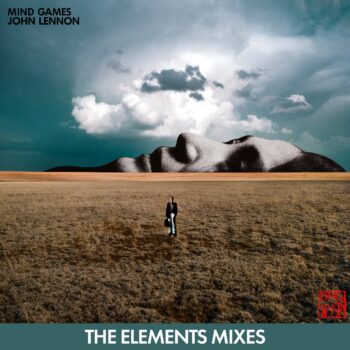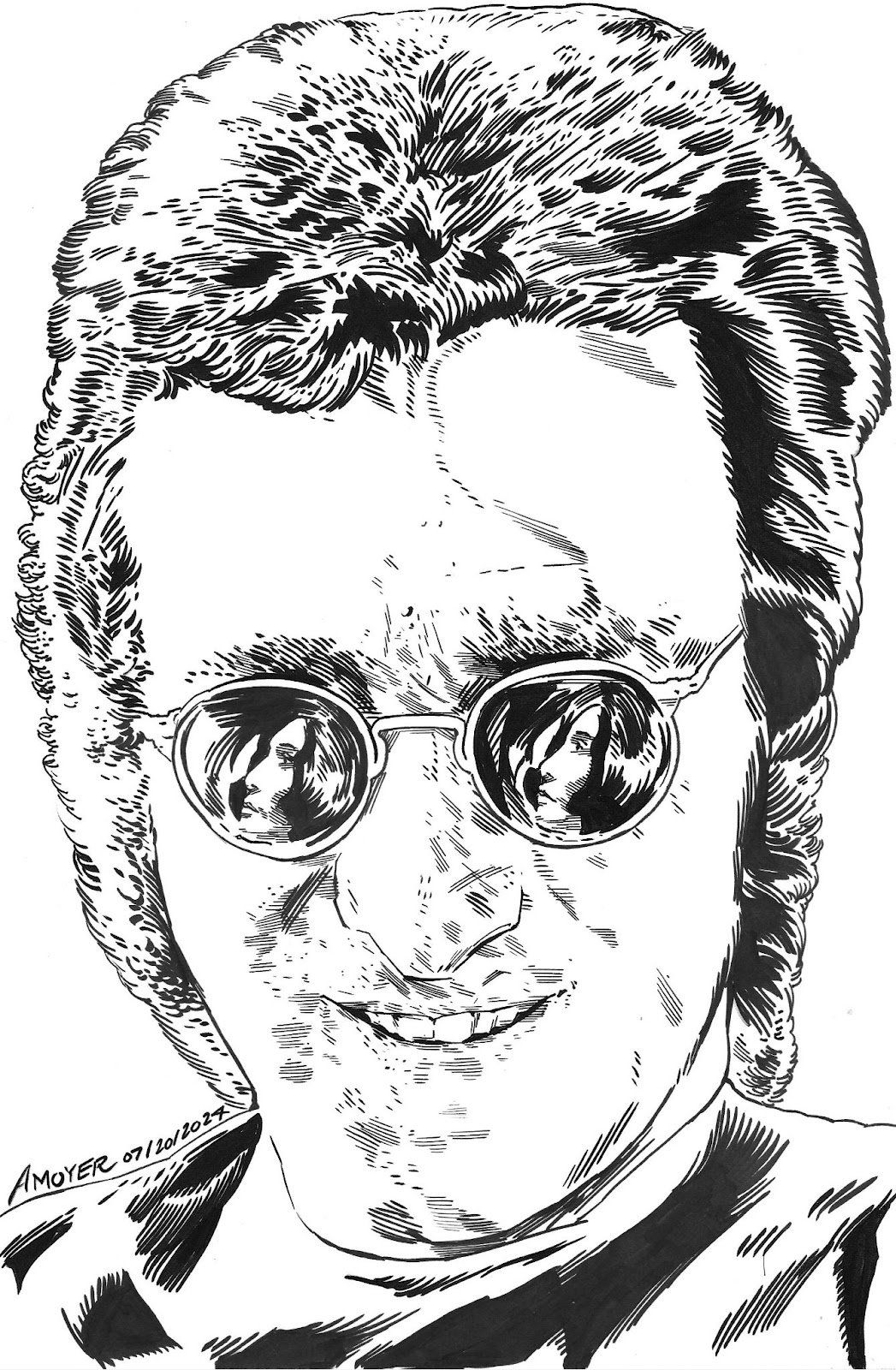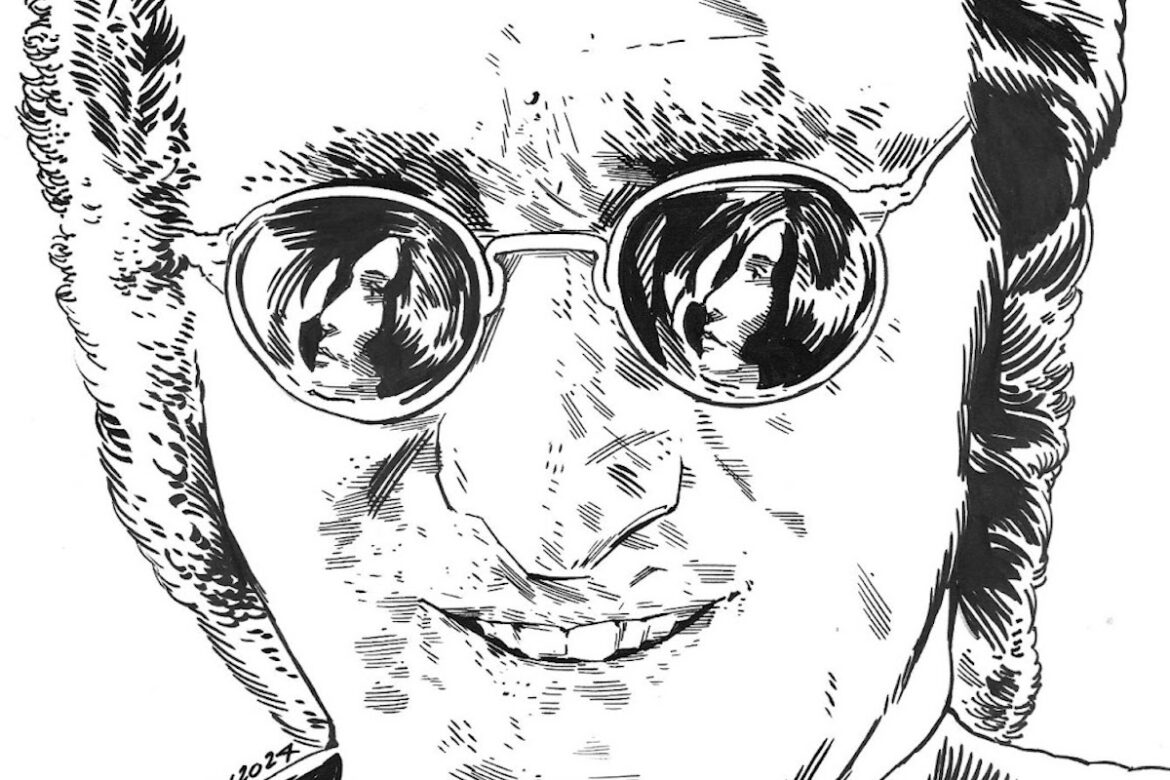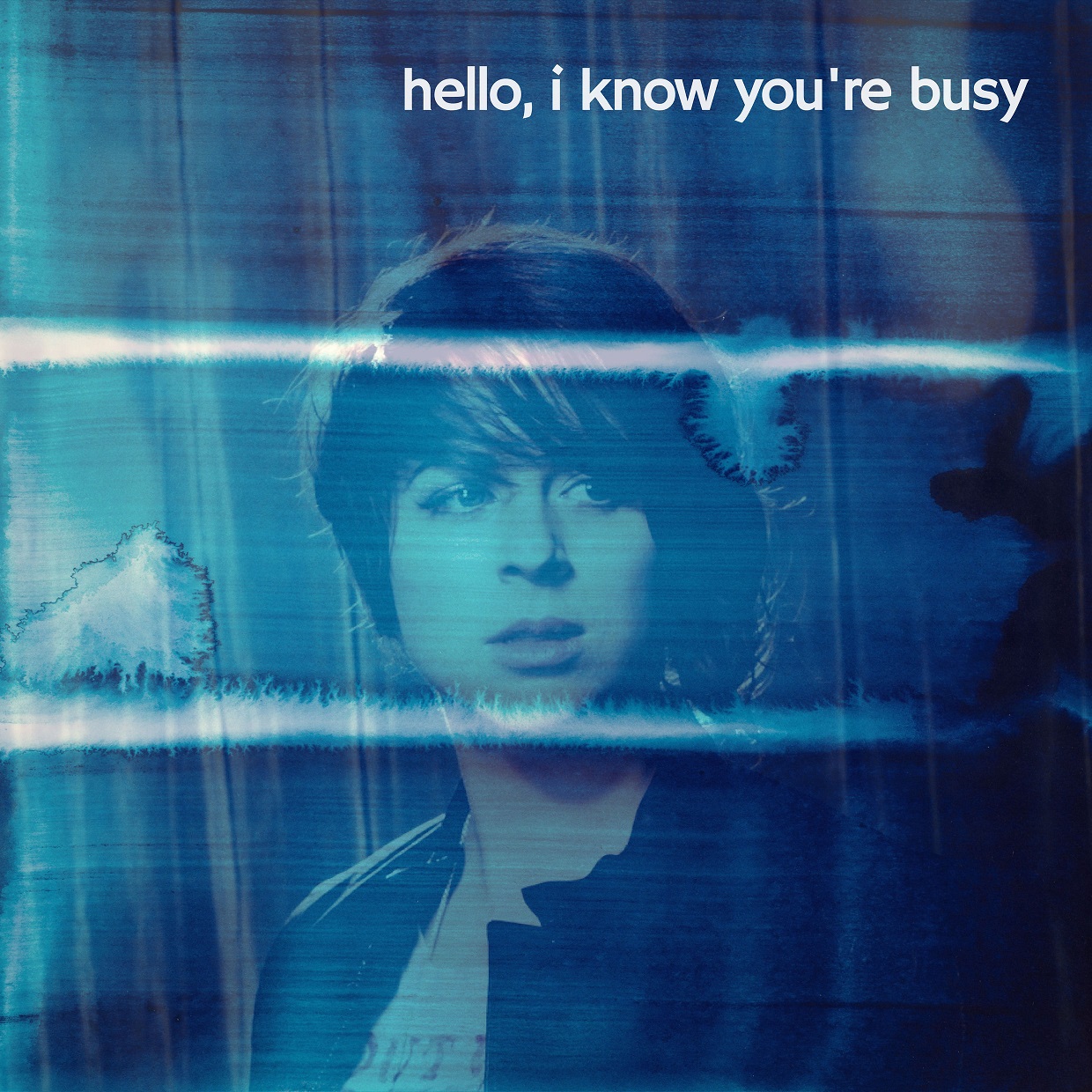Revisited and remastered by Sean Ono Lennon, the new ‘Mind Games’ box set re-centers Yoko Ono’s contributions to John Lennon’s mid-seventies work and provides diehard fans with auditory artifacts and Easter Eggs.
Stream: “Mind Games (The Ultimate Collection)” – John Lennon
The summer of 1973 was a rocky one for John Winston Ono-Lennon.
His marriage to Yoko Ono was hitting the skids, the manager on whom three Beatles had staked their solo careers – Allen Klein – was on the way out, and the first Ono-Lennon collab, “Some Time In New York City,” had badly flopped the year prior.
Lennon needed a hit, so he hit the Record Plant with some of New York City’s finest session musicians. 50 years later, Sean Ono Lennon revisits the mixes, outtakes and demos for Mind Games. Lennon made a massive splash in 1969 as the death knells of the Fab Four sounded; the killer one-two punch of “Give Peace a Chance” and “Cold Turkey,” followed by the classic made-to-order “Instant Karma.” Then, jaws were agape when the primal scream tinged Plastic Ono Band ended with “God” – “I don’t believe in Beatles, I just believe in me. Yoko and me, and that’s reality. The dream is over, what can I say? The dream is over, yesterday. I was the dream-weaver, but now I’m reborn, I was the Walrus but now I’m John. And so dear friends you’ll just have to carry on, the dream is over.” Compared to the warm and homespun McCartney and the reverential triple All Things Must Pass (and Ringo’s country effort, Beacoups of Blues), Lennon’s work was stark and emotionally threadbare.

Further commercial peaks were reached on 1971’s follow-up record, Imagine, with a generational peace anthem placed alongside a McCartney diss track in the running order. Lennon’s stock was rising, despite racist and sexist critiques of Ono as the “Dragon lady who broke up the Beatles.” Then, John Lennon moved to New York. Befriending artists radicals like John Sinclair, Allen Ginsberg, and the Elephant’s Memory Band, Lennon and Ono evolved their peace campaign into an anti-Nixon/war/establishment crusade. Despite its ubiquity now, “Happy Xmas (War is Over)” flopped at the time of its release; Some Time in New York City, with clunky ventures into IRA anthems and Lennon’s most controversial solo track, fared even worse.
As McCartney lifted off the ground with Wings, Harrison emerged as a rock messiah with the concert for Bangladesh and Ringo racked up some bona-fide hits like “It Don’t Come Easy,” Lennon’s popularity seemed on the wane – especially with the FBI. Some of this uncertainty is embedded in the lyrics of Mind Games: Remorse (“Aisumasen (I’m Sorry)”), unsteadiness (“Intuition”), urgency (“Bring on the Lucie (Freda Peeple)”), desperation (“Mind Games”).

The crew assembled at the Record Plant is a tight, funky bunch of session pros (including Jim Keltner). Sometimes, especially on “Only People,” the band sounds a bit like Sesame Street, but then who doesn’t like Sesame Street? (Lennon did – the muppets get shoutouts on “Hold On” and “Stepping Out”). The beauty of how these tracks are laid out is how thorough Sean Lennon is in their instrumental deconstruction. There is a hitherto unheard “Whiter Shade of Pale”-organ buried in the mix of “Mind Games”; “Intuition” features a hypnotic lead piano line that gets to shine in the elements mix. On the album, Lennon sings “One Day a Time” in a falsetto that sounds a bit like a ’50s pastiche, but on the early takes he opts to sing one octave down. This alternate take spotlights the emotional content of the song, heralding his 18-month separation from Yoko, and is a highlight of this set.
Perhaps an even greater revelation is Ono’s audible presence in the control room, producing the outtakes of these songs; Mind Games and Walls and Bridges are often lumped together as a Separation duology, but Ono was right in the booth. In its new remixed form, several Beatles audio allusions are even more apparent. The verse of “Only People” quotes the verse guitar on “Getting Better.” “I Know (I Know),” with its discussions of friendship, reading/speaking minds, the phrase “it’s getting better all the time” and “I’ve Got a Feeling” riff, seems a pretty direct olive branch to Paul McCartney.
In fact, the SuperDeluxe box set includes a hitherto unseen invitation to Paul and Wings to join the Lennons onstage at the One to One Madison Square Garden concerts in late 1972. Beatlemaniacs are also treated to a hidden track featuring Lennon on vocals with a backing band of George Harrison, Ringo Starr, Billy Preston, and Klaus Voormann, on “I’m the Greatest” – demoed for the final version on the 1973 Ringo album.
The Beatles were never as broken up as they seemed… Perhaps the only two tracks not particularly served by the remaster format are the blues jams, “Tight A$” and “Meat City.” Listening to this collection in one sitting, a little monotony sets in by the 4th and 5th versions. Lennon wasn’t the only guilty party in this department; see disc 3 of All Things Must Pass and “Mumbo” on Wings’ Wild Life. It is, however, a treat to hear Lennon say “motherf***ing” in the Meat City sessions (subbed out for Mother Hubbard at the last minute).
Reassessing the catalogs of John Lennon and Yoko Ono is a gargantuan task. Controversy over the opening track of Some Time scuppered that re-release in 2022; others are sure to decry the removal of a saxophone solo in “One Day At A Time.” Sean Ono Lennon, however, bears the brunt of the criticism with tact and humor on Twitter. It is a pleasure to hear these tracks treated with such care, and to see an album that was a high school favorite get a much-deserved second look half a century later.
— —
:: stream/purchase Mind Games here ::
:: connect with John Lennon here ::
— — — —

Follow John Lennon on
Facebook, Twitter, TikTok, Instagram
Discover new music on Atwood Magazine
© Aidan Moyer
Mind Games (Deluxe)
an album by John Lennon


 © Aidan Moyer
© Aidan Moyer





